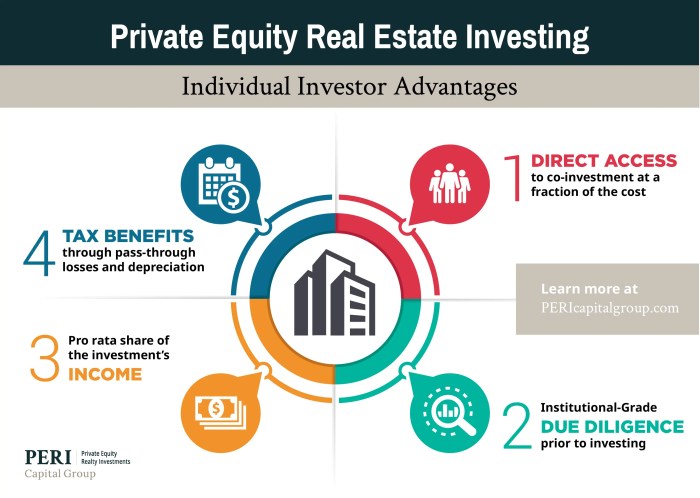Investment Tips for Property Development Businesses: A Comprehensive Guide
Exploring the realm of investment tips for property development businesses, this introduction sets the stage for a deep dive into crucial strategies and considerations. From market research to financial planning, each aspect plays a vital role in the success of property development projects.
As we unravel the intricacies of smart investing in property development, readers will gain valuable insights into minimizing risks, maximizing returns, and navigating the legal landscape of this dynamic industry.
Importance of Investment Tips for Property Development Businesses
Investment tips play a crucial role in the success of property development businesses. By following solid investment strategies, companies can maximize profits, minimize risks, and ensure the success of their projects.
Example of Successful Property Development Projects
Investing in the right location, conducting thorough market research, and understanding the target audience are key investment tips that have led to successful property development projects. For instance, a company that identified a growing neighborhood with high demand for residential properties and invested in developing affordable housing units saw a significant return on investment.
Risks of Not Implementing Proper Investment Strategies
Failing to implement proper investment strategies in property development can lead to financial losses, project delays, and even project failures. For example, a company that did not conduct proper due diligence before investing in a commercial property development project ended up facing legal issues, cost overruns, and a significant loss on their investment.
Market Research and Analysis
Market research and analysis play a crucial role in the success of property development businesses. By conducting thorough research, investors can make informed decisions that are backed by data and market insights. This helps in identifying lucrative opportunities and mitigating risks in the highly competitive real estate industry.
Significance of Market Research
Market research helps property developers understand the demand and supply dynamics in a specific location. It provides valuable information on demographics, economic indicators, zoning regulations, and competition in the market. By analyzing this data, developers can determine the feasibility of a project and assess its potential for profitability.
- Utilizing census data, surveys, and reports to identify target markets and consumer preferences.
- Examining historical sales data and property trends to forecast future demand and pricing.
- Using geographic information systems (GIS) to map out market saturation and identify underserved areas for development.
Impact of Market Trends on Investment Decisions
Market trends such as changes in interest rates, economic growth, and demographic shifts can significantly influence investment decisions in property development. For instance, a booming economy may lead to increased demand for commercial properties, while an aging population could create opportunities for senior living developments.
By staying abreast of market trends, investors can position themselves strategically and capitalize on emerging opportunities.
- Monitoring interest rate fluctuations to assess financing costs and investment returns.
- Analyzing population growth and migration patterns to identify areas with high demand for housing.
- Adapting to changing consumer preferences and lifestyle trends to develop properties that cater to evolving needs.
Financial Planning and Budgeting
Financial planning and budgeting are crucial aspects of successful property development projects. By creating a detailed financial plan and effectively budgeting for each stage of the project, developers can ensure that they have the necessary funds to complete the project on time and within budget.
Additionally, financial forecasting plays a key role in identifying potential risks and implementing strategies to mitigate them, safeguarding the financial health of the investment.
Importance of Financial Planning
Financial planning involves forecasting income and expenses for the project, outlining the sources of funding, and setting financial goals. It helps developers to make informed decisions, allocate resources efficiently, and identify potential financial risks early on. Without a solid financial plan, developers may face cash flow issues, cost overruns, and ultimately jeopardize the success of the project.
- Develop a comprehensive financial plan that includes all costs associated with the project, such as land acquisition, construction expenses, permits, and marketing.
- Consider various funding options, including equity, debt, and partnerships, to ensure that there are adequate resources available at each stage of the project.
- Regularly review and update the financial plan to reflect changes in market conditions, project timelines, or unexpected expenses.
Effective Budgeting Strategies
Budgeting is essential for managing project costs and allocating resources efficiently. By breaking down the project into smaller phases and setting budgets for each phase, developers can track expenses, identify cost-saving opportunities, and ensure that the project stays on track financially.
“Budgeting allows developers to control costs, allocate resources effectively, and make informed financial decisions throughout the project.”
- Estimate costs accurately for each phase of the project, considering factors such as labor, materials, permits, and overhead expenses.
- Allocate contingency funds to account for unexpected costs or delays that may arise during the project.
- Monitor expenses regularly and compare them to the budget to identify variances and take corrective actions if needed.
Role of Financial Forecasting
Financial forecasting involves predicting future financial outcomes based on historical data, market trends, and project assumptions. By analyzing potential scenarios and identifying risks, developers can proactively address financial challenges, optimize resource allocation, and improve project profitability.
| Benefits of Financial Forecasting |
|---|
| Identifying potential cash flow issues and implementing strategies to improve liquidity. |
| Evaluating the impact of market fluctuations on project profitability and adjusting financial plans accordingly. |
| Assessing the feasibility of the project and making informed decisions about investment opportunities. |
Risk Management Strategies

When it comes to property development investments, it is crucial to have effective risk management strategies in place to protect your investments and maximize returns. By identifying common risks associated with property development and implementing appropriate mitigation strategies, businesses can navigate challenges and uncertainties in the market.
Common Risks and Mitigation Strategies
- Market Risks: Fluctuations in property prices and demand can impact the profitability of a development project. Mitigate this risk by conducting thorough market research and analysis before investing.
- Regulatory Risks: Changes in zoning laws, building regulations, or environmental policies can affect the feasibility of a project. Stay informed about regulatory updates and adapt your plans accordingly.
- Financial Risks: Cash flow issues, unexpected costs, or changes in interest rates can pose financial risks to a development project. Maintain a robust financial plan and budget to anticipate and manage financial risks.
- Construction Risks: Delays, quality issues, or disputes with contractors can impact project timelines and costs. Implement strict project management protocols and ensure clear communication with all stakeholders.
Diversification in Property Development Portfolio
Diversification is key to reducing risk in a property development investment portfolio. By spreading investments across different types of properties, locations, and development stages, businesses can minimize the impact of market fluctuations and specific project risks. Diversification can also provide opportunities for higher returns and long-term growth.
Examples of Successful Risk Management Strategies
One successful risk management strategy is partnering with experienced professionals, such as architects, engineers, and legal advisors, to ensure compliance with regulations and quality standards throughout the development process.
Another effective strategy is maintaining a contingency fund to cover unexpected expenses or delays, providing a buffer against financial risks that may arise during the project.
Legal Considerations in Property Development

When it comes to property development, legal considerations play a crucial role in the success of the project. It is essential for property developers to understand the various legal aspects involved in order to make informed investment decisions and minimize risks.
Role of Contracts in Property Development
Contracts are legally binding agreements that Artikel the terms and conditions of a property development project. They help in establishing the rights and responsibilities of each party involved, including developers, contractors, and investors. It is crucial for property developers to carefully review and negotiate contracts to ensure that their interests are protected and that all legal requirements are met.
Importance of Permits in Property Development
Permits are official documents issued by local authorities that grant permission for specific activities, such as construction, renovation, or change in land use. Property developers must obtain the necessary permits before starting any development work to avoid legal complications or fines.
It is important to comply with all permit requirements to ensure that the project is carried out legally and in accordance with local regulations.
Understanding Zoning Laws in Property Development
Zoning laws regulate the use of land in different areas and specify the types of activities that are permitted in each zone. Property developers need to be aware of zoning laws to determine the feasibility of their projects and ensure compliance with the designated land use regulations.
They may need to apply for zoning variances or special permits in some cases to proceed with their development plans.
Tips for Legal Compliance in Property Investments
- Consult with legal experts to review contracts and agreements before signing.
- Obtain all necessary permits and approvals from relevant authorities.
- Stay informed about changes in zoning laws and regulations that may affect your project.
- Maintain accurate records and documentation to demonstrate legal compliance.
- Develop a risk management strategy to address potential legal issues and mitigate risks in property investments.
Sustainable Development Practices
Sustainable development practices have become increasingly important in the property development industry due to the growing awareness of environmental issues and the need for long-term viability. By incorporating sustainability into property development projects, businesses can not only reduce their impact on the environment but also improve their bottom line and reputation.
Benefits of Sustainable Development
- Cost Savings: Implementing energy-efficient systems and materials can lead to reduced operating costs over time.
- Marketability: Sustainable properties are in high demand among environmentally conscious consumers, leading to higher property values and faster sales.
- Regulatory Compliance: Adhering to sustainability standards can help businesses avoid fines and penalties while staying ahead of changing regulations.
- Long-Term Resilience: Sustainable buildings are often more durable and resilient, reducing maintenance costs and increasing property lifespan.
Successful Sustainable Development Initiatives
One successful example of sustainable development in real estate is the use of green roofs to reduce heat absorption and energy consumption in buildings.
Another example is the implementation of solar panels to generate renewable energy and reduce reliance on traditional power sources.
LEED (Leadership in Energy and Environmental Design) certification has also become a widely recognized standard for sustainable building practices, leading to increased property value and marketability.
Last Recap
In conclusion, the journey through investment tips for property development businesses unveils a roadmap to prosperity in a competitive market. By incorporating sustainable practices, managing risks effectively, and staying abreast of market trends, businesses can thrive and grow in the realm of property development.
Question & Answer Hub
What are some common risks in property development investments?
Common risks include market fluctuations, construction delays, and regulatory changes. Mitigate these risks through thorough planning and risk management strategies.
How can financial forecasting help in property investments?
Financial forecasting allows developers to anticipate potential financial challenges and adjust their strategies accordingly. It plays a crucial role in ensuring the financial stability of a project.
Why is sustainable development important in property investments?
Sustainable practices not only benefit the environment but also enhance the long-term value of properties. Investors are increasingly recognizing the importance of sustainability in attracting tenants and buyers.



